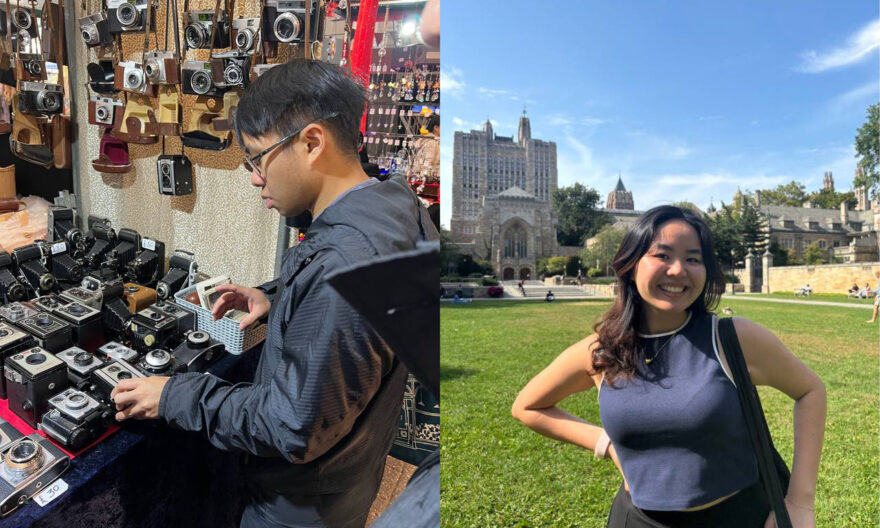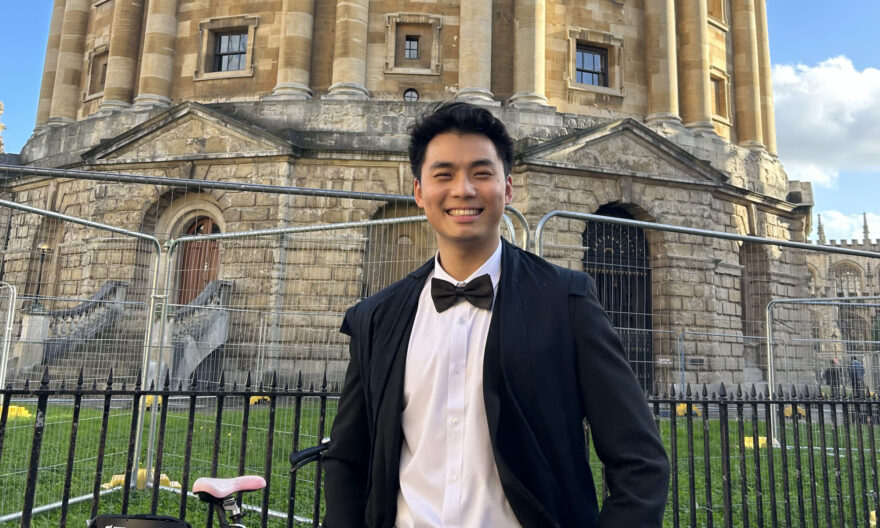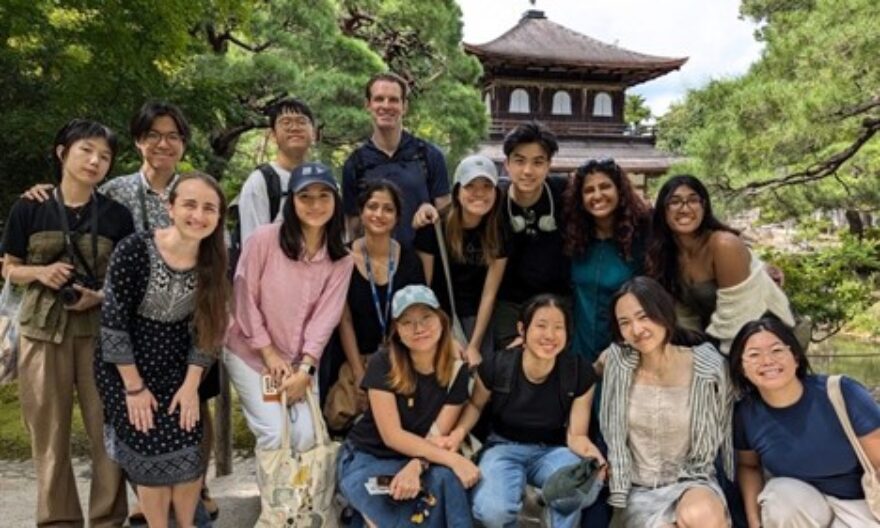What Yale-NUS College students learned over the summer
We spoke with three students to find out what they learnt from their academic programmes over term break
 Ellisha outside the Peace Palace, where her programme was held (Left), Siddharth and friends in Spain (middle), and Gunnar in the forests of Bhutan (right). Images provided by Siti Nurellisha Binte Khairi Salehudin, Siddharth Mohan Roy, and Gunnar Hoang Son Schmidt.
Ellisha outside the Peace Palace, where her programme was held (Left), Siddharth and friends in Spain (middle), and Gunnar in the forests of Bhutan (right). Images provided by Siti Nurellisha Binte Khairi Salehudin, Siddharth Mohan Roy, and Gunnar Hoang Son Schmidt.
Driven by curiosity, Yale-NUS College students often pursue their studies in a wider context, moving beyond the curriculum on campus. The College supports these learning opportunities which include summer study abroad programmes such as the Summer Academic Scholarships and Summer Language Scholarship.
Siti Nurellisha Binte Khairi Salehudin (Ellisha), Siddharth Mohan Roy, and Gunnar Hoang Son Schmidt (all from the Class of 2025) are three students who went on summer study abroad programmes during the past semester break.
Ellisha, a student in the Double Degree Programme in Law and Liberal Arts (DDP) who is also majoring in Global Affairs, went to the Hague Academy of International Law for its Public and Private International Summer Law Programme as it gave her the opportunity to pursue International Law, a topic of interest. Additionally, the programme offered European Union Law courses, which are not available in Yale-NUS or the National University of Singapore (NUS)’s Faculty of Law. As Ellisha hopes to pursue International Law in the future, she was able to learn more about the subject and broaden her academic horizon.
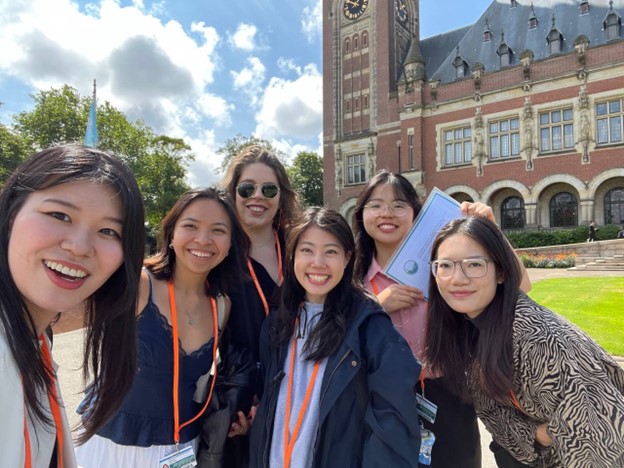 Ellisha (second from the left) with several of her coursemates. Image provided by Siti Nurellisha Binte Khairi Salehudin.
Ellisha (second from the left) with several of her coursemates. Image provided by Siti Nurellisha Binte Khairi Salehudin.
As there were many working professionals studying at the Hague Academy of International Law, Ellisha felt nervous about the new environment when she first started. She said, “Initially, I suffered from major imposter syndrome because everyone in the programme is mostly working towards or doing their PhD. It made me feel very inadequate in comparison.”
Fortunately, her classmates were happy to share with her about their research and experience, and Ellisha was able to learn a lot from them. Furthermore, this meant she was not only learning from but learning with professionals, who could give her insights into the options that she had in the field of international law and it gave her the chance to expand her industry network.
Another student who studied in Europe during the semester break was Siddharth who traveled to Spain to study Spanish at the University of Léon under the Summer Language Scholarship. Siddharth’s decision to apply for the scholarship was in part influenced by the Travel Fellowship he went on last year, which took him to Barcelona and Madrid in Spain to conduct ethnographic research. Through that research experience, he realised the importance of language fluency for his ethnography study, as he could not fully engage with the local culture or communicate with non-English speaking locals when he was unable to speak Spanish. Therefore, Siddharth decided to return to Spain to further his knowledge and practice of Spanish language in an immersive environment.
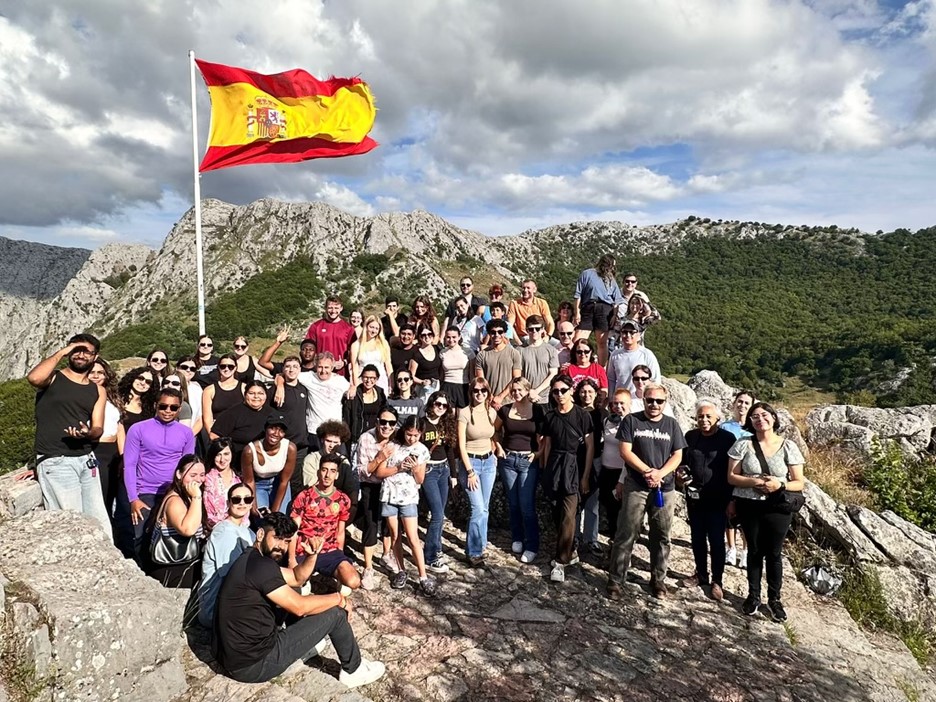 Siddharth and his coursemates in Léon. Image provided by Siddharth Mohan Roy.
Siddharth and his coursemates in Léon. Image provided by Siddharth Mohan Roy.
At the University of Léon, Siddharth benefitted from learning together with students from various countries, such as Germany, Morocco, and Madagascar. With such a diverse mix of classmates from different backgrounds, English was seldom used, and the students mainly used Spanish to communicate as it was often the only common language they had with one other.
Siddharth acknowledged that this was initially discomforting, “Unlike studying in Singapore, where I could rely on English for clarification, we had to rely on gestures, pictures, and enactments to communicate when Spanish words failed us.”
However, the experience resulted in several positive outcomes. Firstly, it made learning Spanish even more immersive. Secondly, Siddharth became more at ease with being uncomfortable. With that, he was able to throw himself into the learning process and build his confidence in the language through real-life application, especially in places where English was rarely used.
After having such a positive experience, Siddharth has decided to continue to learn Spanish at NUS and intends to apply for the language certification exam with the Spanish Embassy in Singapore at the end of the semester.
Other students chose to study in Asia. Gunnar applied for the Summer Academic Scholarship to study at the School of Field Studies in Bhutan.
The country’s parks and forests were of particular interest to Gunnar, especially as his programme enabled him to do forest surveying. The School of Field Studies brought him around mountains and valleys of the country where he could use Geographic Information System surveying methods to do research. Since Gunnar is also considering becoming a full-time forester, this programme helped him develop skills that he found helpful, particularly in ecosystem monitoring and data collection.
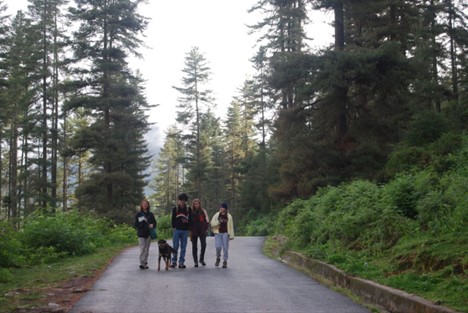 Gunnar (second from the left) and his course mates travelling the mountains in Bhutan. Image provided Gunnar Hoang Son Schmidt.
Gunnar (second from the left) and his course mates travelling the mountains in Bhutan. Image provided Gunnar Hoang Son Schmidt.
Gunnar enjoyed his time in Bhutan a lot and tried to relish each part of his day. Every morning, he would wake up early before his roommates and leave his lodgings to see the morning light shine over the mountains of Bhutan.
“Being there helped me connect to many people within the country,” Gunnar reminisced. “By my estimate, these hold much cultural capital. I also built good relationships with mentors and peers through having fun together, and I believe these might come calling down the road.”
For the three students, the semester break was well-spent as they gained new skills and perspectives. This inquisitive mindset and the knowledge they gained has left an imprint on their College journeys and will inspire their future decisions.

